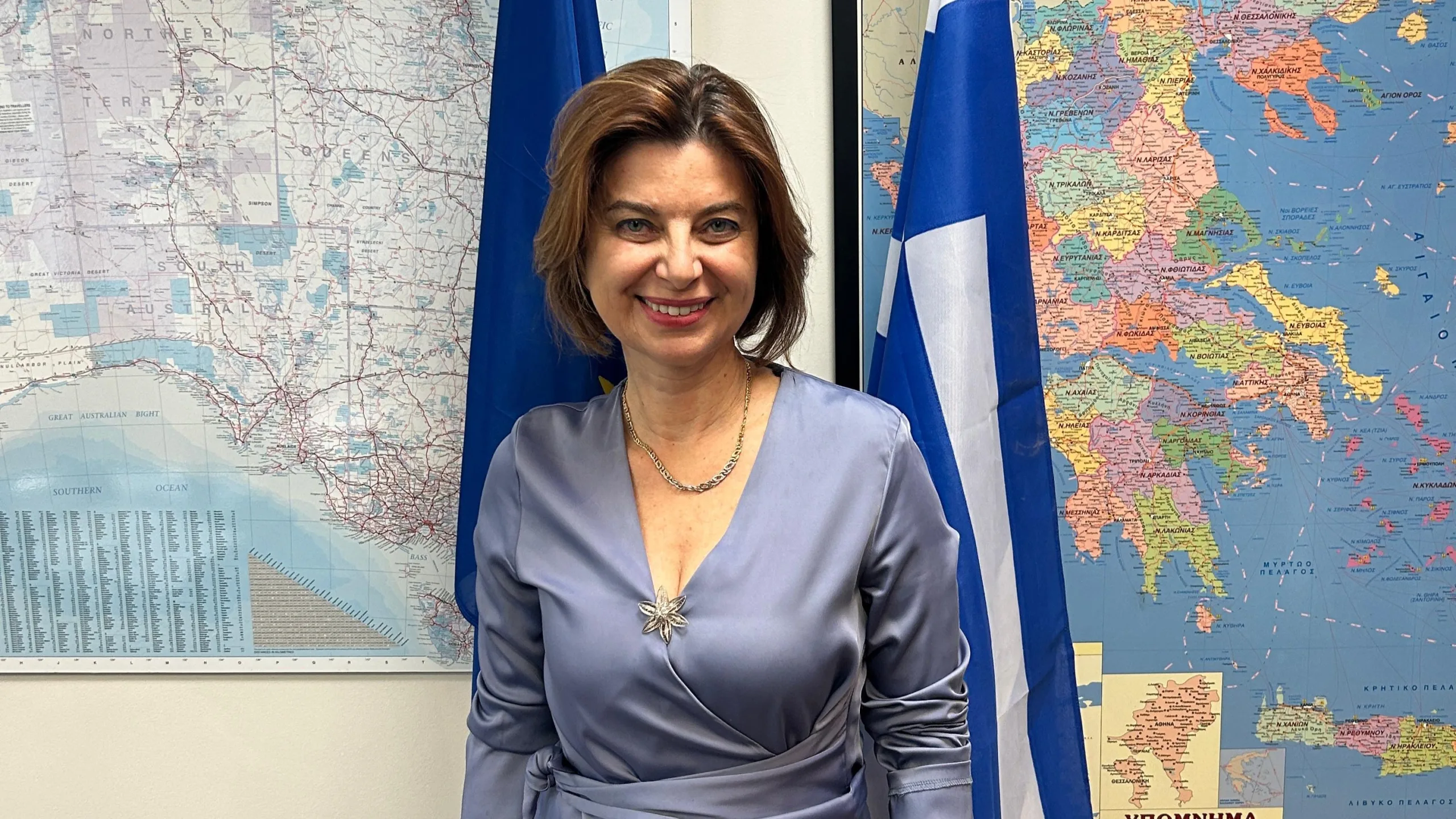When the Consul General of Greece in Adelaide, Dr Alexandra Theodoropoulou, first set foot in South Australia, she brought with her more than just diplomatic credentials. She carried a mission to listen to the Greek Australian community, to understand their aspirations, and to find practical and cultural ways to connect them more deeply to their Hellenic roots.
A year on, her presence has been both highly visible and deeply felt, from state visits and diplomatic meetings to grassroots events and community initiatives. With warmth, pragmatism, and vision, she has engaged with the community at all levels, driven by a belief that Greek identity abroad must be actively cultivated, not simply inherited.
The Greek Herald sat down with the Consul General of Greece in Adelaide to reflect on her first year in office, just ahead of the one-year anniversary of her appointment, and to find out more about her personal and professional background prior to arriving in Australia.
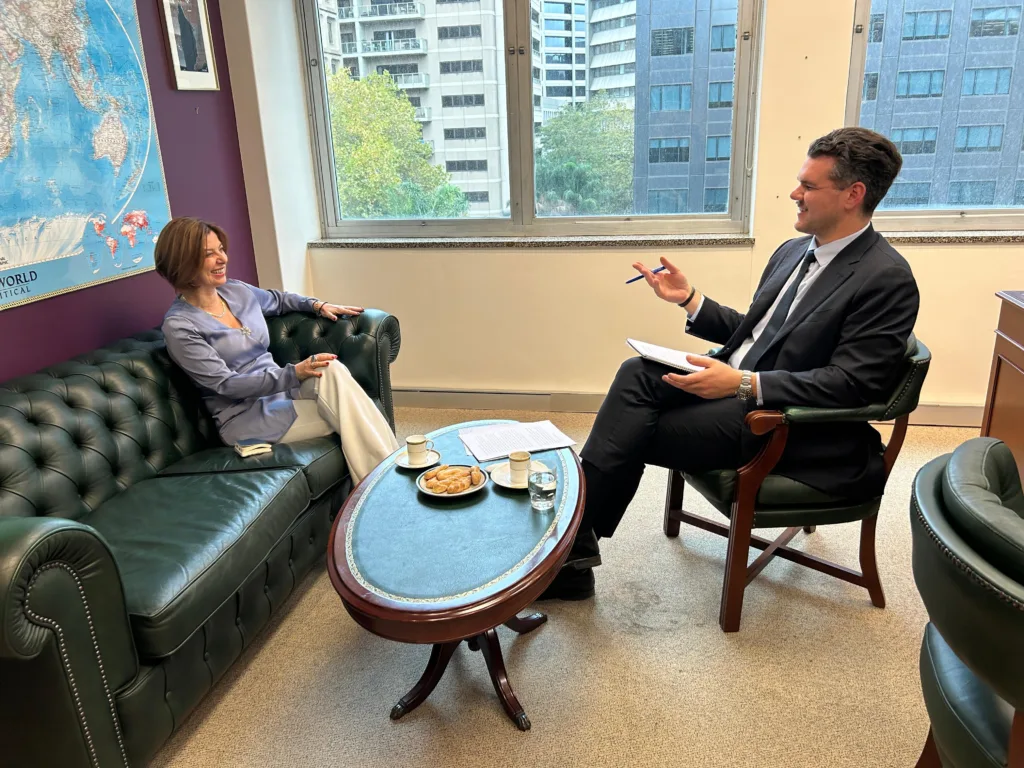
The road to diplomatic life
The Consul General’s pathway to diplomacy was paved by a childhood of travel, a love for language, and a deep Hellenic pride. Her university studies took her across Europe, from Strasbourg to Barcelona and Brussels to Paris, where she absorbed the vibrancy of cosmopolitan life.
Ultimately, she returned home remarking that, “I didn’t realise how privileged I was to speak Greek until I studied abroad. That’s why I chose to complete my PhD [in political science and history] back in Greece.”
During her PhD, the Consul General explored the human condition through a dialectic of survival and the sacred, combining law, philosophy, history, and anthropology, arguing that humans are defined not just by biological needs but by sacred and symbolic acts. This dialectic is analysed through the lens of identity, religion, and community.
Subsequently, the Consul General saw the opportunity to join the diplomatic corps as, “a way to express my love for language, to honour Greece, and to serve peace.” She has since been posted to Geneva, Brussels, Houston and the Permanent Mission to the United Nations (UN).
And now, Greece is a member of the United Nations Security Council for the 2025–2026 term – a significant diplomatic milestone that positions the country alongside the five permanent and 10 non-permanent members in addressing global challenges.
“Our motto is the ‘three Ds’: Dialogue, Diplomacy, Democracy,” she says. “We always aim to be a peaceful force. And while some topics, like maritime zones, may not be on the formal agenda, being part of the Council gives Greece a platform and presence in those discussions.”
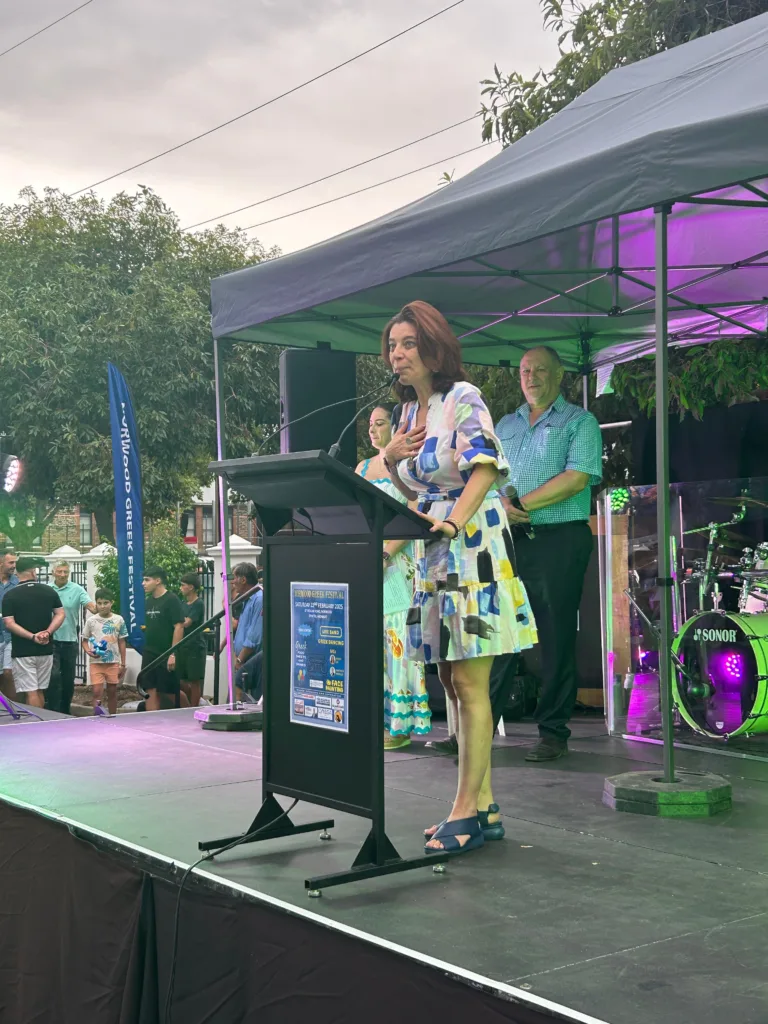
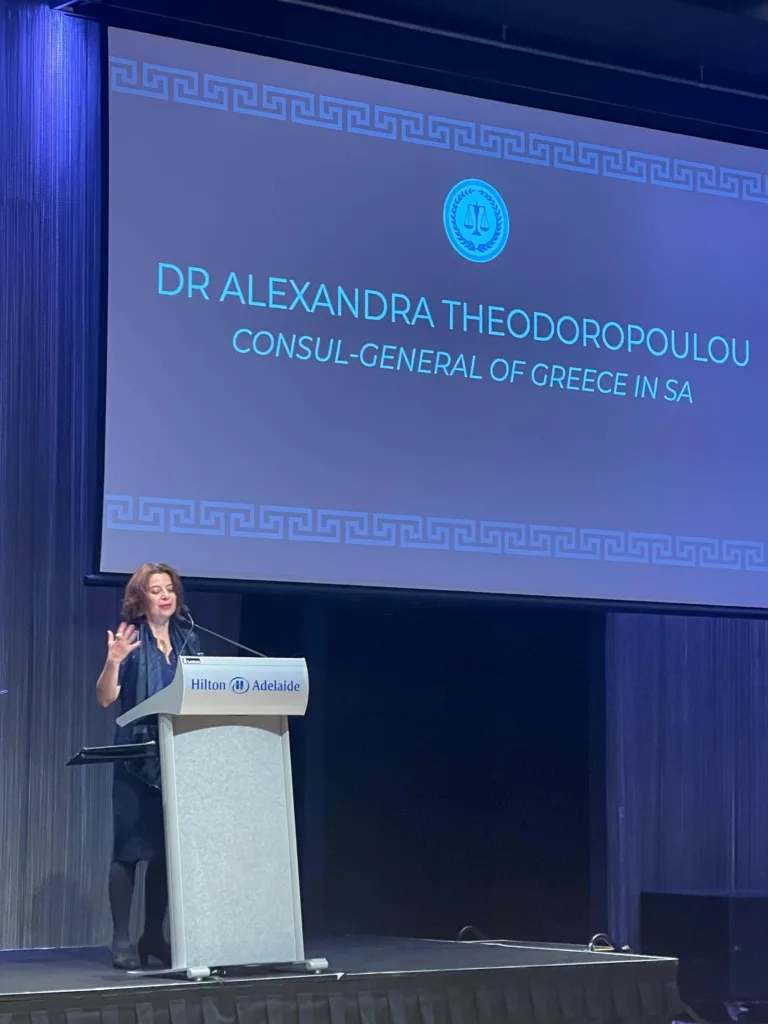
A hidden strength: Greek Australians across all sectors
One of the first surprises of her posting was the sheer breadth and impact of the Greek presence in Adelaide.
“It is amazing, it was one of the things that surprised me most,” she reflected. “Not only the number of Greeks, but their level of influence and dynamism [in the community]. From politics to the judiciary, academia to business, and much more.”
She noted with admiration this diversity of roles that Greek Australians play, from judges and politicians to community organisers, artists, and educators. “The influence is multi-sectoral. I think it’s important for both Greece and Australia to see how strong and respected the diaspora is in this state.”
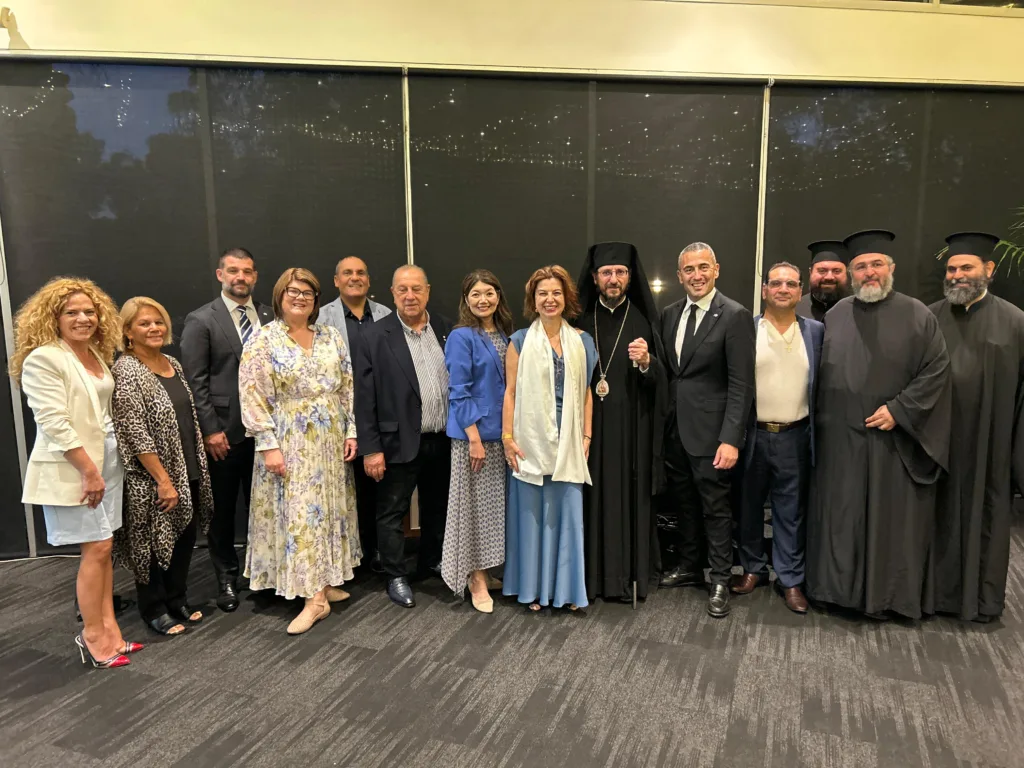
The dual role of the Consulate: Consular and cultural
The Consul General sees the Consulate’s work as comprising two intertwined branches of activity: the consular services and the cultural mission.
“First is the consular work, which is essential. It is related to do with the citizenship. Whether it’s passports, certificates, births, marriages etc. It is all the paperwork that connects you with your roots, with your village, with your city, and with Greece,” she says.
“If you have your Greek passport, you are already more connected to your identity. It is not just the paper. It’s what makes you able to stay there in Greece and in Europe, because we are Europeans, and to hold property and serve your country.”
The Consul General expressly encourages all Greek Australians, and especially young people, to keep or form this link with Greece, and noted the work of the consular staff, who are equally as passionate and working tirelessly to address these consular needs.
But the second part is just as important. The second part is the cultural.
“To keep the culture alive here in Australia. There is an enormous cultural and ecclesiastical life here: festivals, organisations, associations,” she says. “Our presence as a Consulate at these cultural events is very important.”
She is particularly proud of the international recognition of Greek Language Day and hopes to promote this amongst the South Australian community: “UNESCO’s recognition of February 9 as Greek Language Day is a great moment for us. It is also the day of our national poet, Dionysios Solomos. This recognition shows how valuable the Greek language is – not only to Greeks but to the world. It’s a language of knowledge – past, present, and future.”
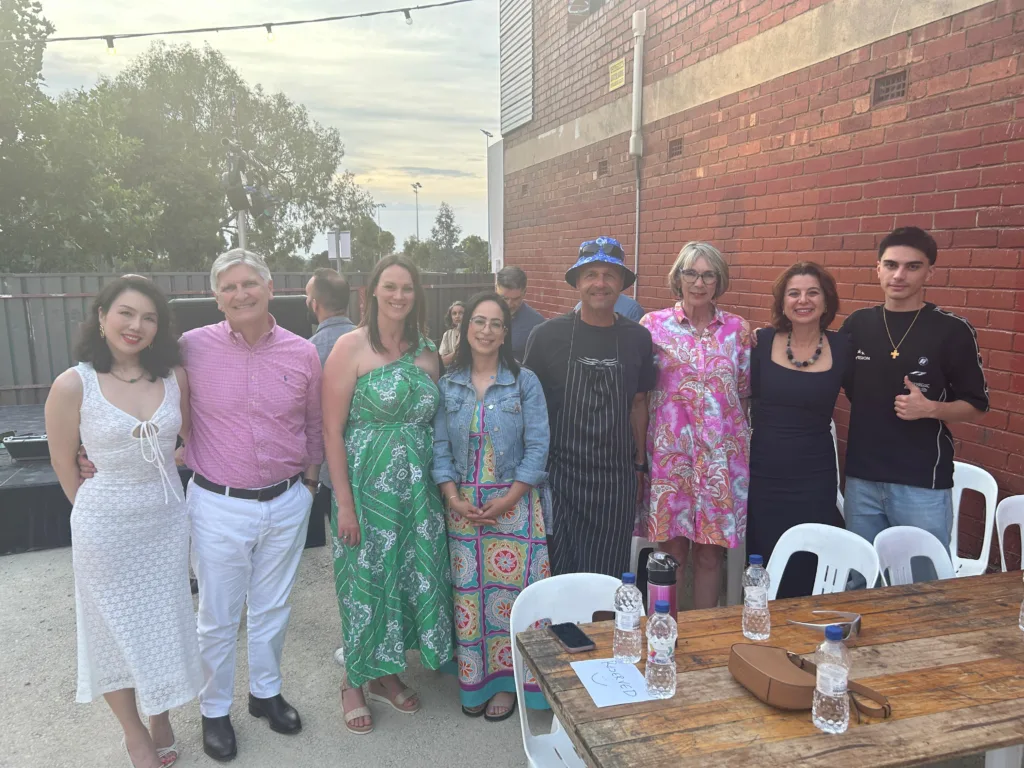
Improvement of Consular service facilities
When asked about widespread reports of delays and difficulties in obtaining citizenship and passports, we asked the Consul General whether she could update us on any new initiatives that have been implemented or processes currently in place to address these issues.
“The waiting period for the passports has shortened quite a lot, depending on the period of application, which is not more than a month. For the appointment, there is a period of two to three weeks, as the Consulate has only been allocated one individual for passport services,” she answers.
“The primary issue with obtaining passports is that the Consulate itself cannot issue passports. These are issued by the Hellenic Police. This takes approximately two months as it goes to Greece and comes back, assuming that citizenship and all documents are in place.
“For the citizenship processes and other related certificates, an appointment can be relatively quickly made within two to three weeks. Following this, it depends on the case of the application and the individual. For example, if you are a third-generation Greek and your family has not previously registered any documents with the Greek authorities, such as births, marriages, etc., it can take longer.
“However, even though it can be a prolonged process, we encourage Greek Australians to trace their roots and to get their papers. I would like to thank my staff for this, as they are willing to do this tracing/research exercise, and it is a lot for them.”
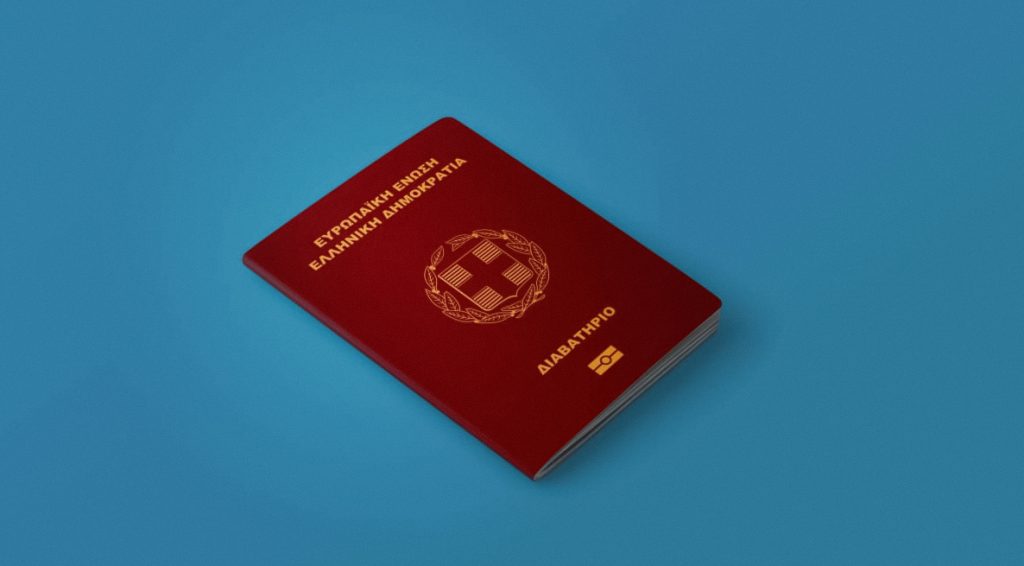
Supporting education and youth engagement
The Consul General is a vocal advocate for the ‘Πιστοποίηση Ελληνομάθειας,’ the official Greek Language Certificate, and ensures the Consulate supports its administration locally.
“These exams are available every year. They’re held in schools and coordinated by Greek teachers attached to the Ministry of Education. We support this effort because language is identity,” she says.
Youth exchange programs have also been a focus, and the Consul General wishes to raise awareness of this opportunity for the upcoming year in 2026.
“[The public may not know but] we organise and have organised heritage tours for young people aged 18 to 25. There are programs for students, for Greek dancers, even for elders. This year, we’re sending two Greek dance instructors to Greece. We’re hoping to increase youth participation next year,” she explains.
“These trip involve going on tours and bringing young people together. They go to archaeological places, they spend time in Greece and it’s sponsored by the Ministry of Foreign Affairs and the General Secretariat of Greeks Abroad.”
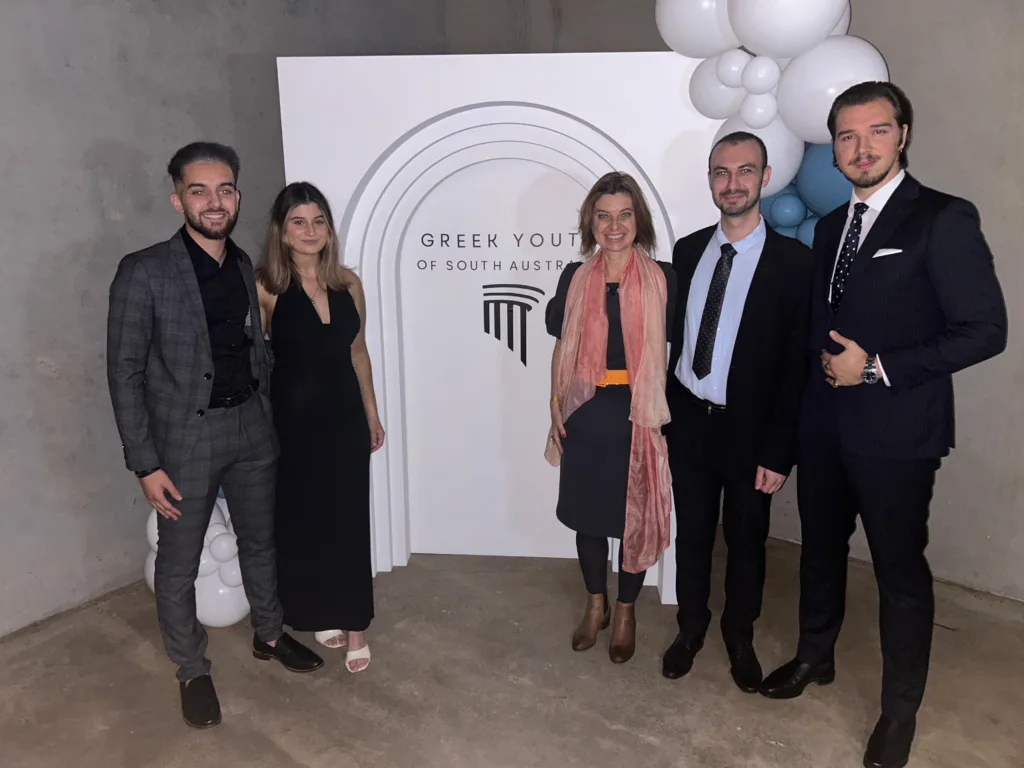
Expanding partnerships across sectors
The Consul General emphasised that the Consulate is actively supporting a range of initiatives, including ongoing discussions with the Greek Minister of Culture aimed at strengthening cooperation with Adelaide’s diverse cultural festivals.
She highlighted the importance of cultural diplomacy and reaffirmed the Consulate’s role in facilitating engagement with professional organisations such as HACCI and Hellenic Australian Lawyers (HAL) to deepen institutional and community ties.
One standout initiative was a scientific partnership between Adelaide’s SmartSat Cooperative Research Centre and the Democritus Centre for Scientific Research in Greece: “These collaborations show what we can achieve – not only culturally but scientifically and economically.”
The Consul General clarified how they facilitate these partnerships, using HACCI as an example: “[we facilitate connections] by putting them in contact with relevant Greek professional organisations for trade and tourism, and many other sections. There are commercial delegations like businesspeople coming to Australia. It is coordinated by our trade office in Sydney, but we put them in contact and assist with the connections.”
Active engagement: From cultural festivals to personal milestones
The Consul General’s presence at countless community events has not gone unnoticed. Whether attending commemorations, supporting youth organisations, visiting schools, or celebrating Orthodox feast days, she has been deeply involved.
“Some of the most rewarding moments for me were the visits of dignitaries, such as our Ambassador from Canberra, Stavros Venizelos, and the Presidential Guard on ANZAC Day. That was a very proud moment – showing our level of commitment and giving thanks for the common fight that we have for freedom,” she says.
“It was an endorsement to the importance of Greek Australians, the consular staff and the Consulate’s relationship with the Ambassador.
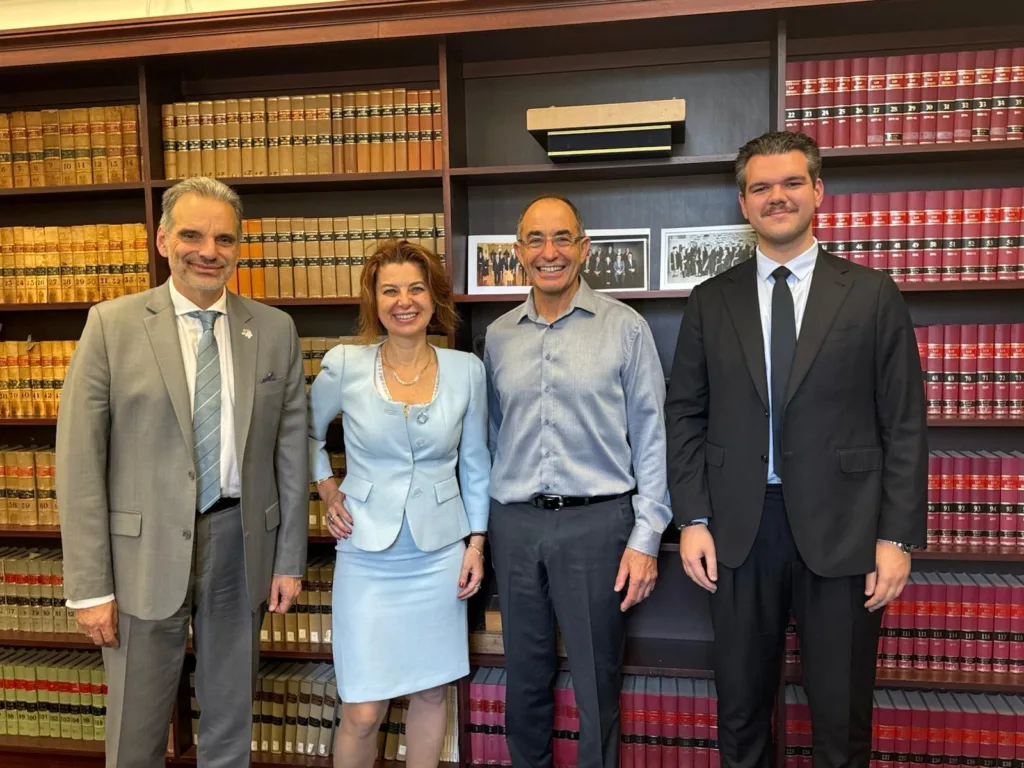
Toward a Sister City agreement: Athens and Adelaide
One of the Consul General’s major initiatives has been the development of a Sister City agreement between Athens and Adelaide.
“We have pushed this from the beginning. The Ambassador’s visit helped move it forward. I submitted a detailed proposal to the Lord Mayor’s office. Now a Memorandum of Understanding is being drafted,” she says.
This agreement would focus on environmental cooperation, heritage and tourism, and Cultural and youth exchanges.
The Consul General is “positive” the agreement will occur and said both cities are “interested in environmental and smart city practices, including waste management, building renewal, recycling, cultural exchanges, and hopefully, if the COP31 proceeds in Adelaide, we would be delighted to develop best practices.”
“As Adelaide is a modern city and is the Athens of the South, Athens is very receptive to the work done here and is drawing their attention to the best practices of Adelaide, including with heritage protection. Athens [also] can share a lot in terms of cultural management and promotion,” she adds.
Strengthening economic ties through the Greece–Australia Double Taxation Agreement
On developments around the Double Taxation Agreement (DTA), the Consul General said, “We’re very close to finalising the Double Taxation Agreement between Greece and Australia. Negotiations began in 2021. We’ve completed five rounds. We anticipate it will be signed soon.”
This agreement, she explains, is a game-changer.
“It avoids the burden of double taxation for individuals and businesses. It provides tax certainty and makes cross-border trade and investment much more attractive. It also addresses long-standing concerns around the taxation of inherited property,” she says.
For example: A Greek resident receiving AU$100 in bank interest from Australia currently may pay tax twice – first in Australia (10%), then again in Greece (20%). Under the DTA, Greece would give a credit for the Australian tax, so the individual only pays the difference. That means a total tax of 20%, not 30%.
The Consul General concluded by expressing her strong commitment to supporting the Greek Australian community through greater outreach, deeper collaboration between organisations, and active engagement across government, cultural, and professional sectors, affirming the Consulate’s readiness to assist with programs and initiatives wherever possible, working together to strengthen the bonds between Greece and Australia.
Checklist: Booking an appointment and preparing for your visit to the Consulate General of Greece in Adelaide
To ensure your appointment is as smooth and effective as possible, follow the steps below:
1. Visit the Official Website: https://www.mfa.gr/australia/en/consulate-general-adelaide/
2. Go to “My Consular Services” Section
This is where you’ll find detailed guidance on the service you require. It outlines the documents you need to prepare/ seek depending on what you wish to achieve.
Services include:
- Citizenship
- Passport renewal
- Visa information
- Certificate of registration
- Greek language exams
Before proceeding with bookings, carefully read the requirements relevant to your case and collect the necessary documentation.
3. Booking an Appointment
- If you have a Greek Tax File Number (AFM), you can book an appointment directly online via the consulate’s website.
- If you do not have an AFM, you should email or call the Consulate. Email is preferred, so staff can better understand and prepare for your request.
4. Email for Clarification (if needed)
When contacting the Consulate, clearly explain what you are seeking (e.g. “I want to apply for Greek citizenship based on my grandfather born in Thessaloniki”). This helps staff direct you appropriately and efficiently.
5. Appointment Waiting Time
- Appointments are scheduled within 2–3 weeks of your request.
- Bring all required documents with you to your appointment to avoid delays.
6. Processing Timeframes (Post-Appointment)
- Passports: Approximately 4–6 weeks after submission (as they are issued in Greece by the Hellenic Police).
- Citizenship: Varies based on your individual case, especially whether prior family registrations (such as births, deaths, marriages etc) have been recorded in Greece.
Another important aspect of our consular services relates to diasporic investment in Greece. The Consulate also provides guidance on property matters, connect individuals with the appropriate professionals who can assist, and help with legal advice and documentation, including formal writs.
